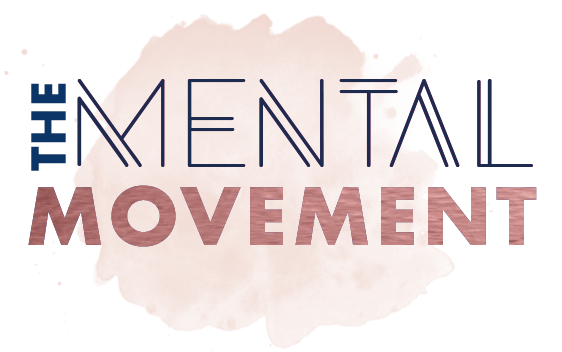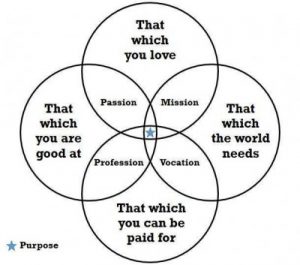This is a photo that I took in 2008 while on expedition in India. This guy was a mason (as in bricklayer, not the secret handshake type), he lived in a tiny village where we were helping to build eco-sanitation units because they didn’t have toilets in their homes. What cracked me up was that he didn’t actually speak any English so wouldn’t have had any idea what his t-shirt said and, alongside that, seemed very content with his job as a mason.
When I returned to the corporate world after my career break in India, I printed this photo A4 size and stuck to my desk – it then followed me through several jobs while I tried to find my place in the working world. The inherent irony of it made me smile, but not sure whether my bosses and colleagues necessarily felt the same.
So, what do you think about work at the moment?
Is it a lousy way to earn a living?
Do you spend your working hours fantasising about being somewhere else, doing something else, winning the lottery or yearning for the weekend/your next holiday?
The reality is that most of us have experienced at least one nightmare job which gave us the big-time Sunday blues, one job which gave us butterflies of excitement at the promise of opportunity (momentarily, if nothing else) and one job which confused us with it’s list of upsides and a seemingly equal list of downsides.
Based on a 40 hour week, a 40 year working life, an average life expectancy of 81 and 7 hours sleep a night, we will spend over 500,000 hours and around 15% of our waking lives working.*
Therefore, it’s surely very worthwhile to try to maximise our chances of a) enjoying what we do for work and b) feeling we get value back for the effort we put in.
This post, and the content that I’ll share during the course of this week, is intended to help people who feel there’s room for improvement in the enjoyment and/or value that they get from work – hence a change is required.
These two critical factors are driven by what work means to us and are influenced by our unique values, preferences, priorities and life situation/choices.
What does work mean to you?
Money. Making a difference. Intellectual stimulation. Status. Having a purpose. Self-esteem. Satisfaction. Stimulation. Creative outlet. Sense of progression. Power. Structure. Prestige. Competition. Creating value. Distraction. Global domination.
These are just random ideas I came up with in a few minutes.
Come up with your own list of ‘what work means to you’ by trying to complete the sentence:
“I work because I need…..”
And once you’ve got some stuff that you feel good about, then prioritise until you have a shortlist of about 10 essential ‘reasons’.
Warning, slightly controversial comment coming up…….My suspicion is that there are quite a few people out there not feeling that they get value for their effort because they are compromising on some of their ‘reasons’ while earning more money than they actually need to fund their lifestyle.
And perhaps I suspect this because, until two years ago, one of these people was me.
What drives your enjoyment of work?
Job content. People. Culture. Variety. Collaboration. Innovation. Security. Impact. Recognition. Flexibility. Perks. Being an expert. Autonomy. Location. Learning. Nurturing others. Balance. Challenge.
Think about the best job you’ve ever done or imagine how you’d feel about your ideal job and finish the sentence:
“I particularly love(d) this job because……”
Again, brainstorm and prioritise until you have around 10 essential ‘pleasures’.
How do you know if you need a change?
With your ‘reasons’ in mind, rate your current job out of 10 for value in return for your effort.
With your ‘pleasures’ in mind, do the same to rate your enjoyment of your current job.
Here’s my very crude analysis…..
- I’d say you’re doing pretty well if you score 8 or above in both.
- You may need to make some tweaks to what you do if your total score is 13-15 (inclusive).
- And I’d say that you’re likely to need a significant shift in your work life if either of the scores are less than 5 or your total score is less than 13.
If you’re not a numbers geek like me, then here’s another way of thinking about it…..
We tend to fall into one of 3 broad categories re how we found ourselves in the job we’re doing right now:
- It was always what you intended – e.g. doctors, vets, lawyers but also those who were just clear on what they wanted from a pretty early age. In my network, these folks are the minority. Perhaps you’ve already tweaked and specialised to keep the passion alive or perhaps the love is starting to wane and something probably needs to change.
- Somewhere along the way you decided it was a good option – perhaps your first few jobs weren’t quite right but you sussed out what you did like and shaped it from there. It generally meets your needs but you might need a bit of a push to keep moving forwards and keep things interesting.
- You have no idea how you got here and need to find a way out.
So, what happens if you don’t make a change?
‘You’re in need of a tweak’……..if you’re lucky, things will shift anyway or, if you’re not so lucky, the small things will build over time and your enjoyment and/or value in return for effort will be eroded until…..
‘You’re in need of a significant shift’…….you’re likely to feel any or all of the following: frustrated, stressed, demotivated, stuck, bored or disengaged. If you spend more than a few months in this place without taking any action, it’s likely that these feelings will start to affect other aspects of your life and/or you’ll become so stuck that you struggle to envisage a way out.
How do I get started with making a change?
Step one
Evaluate where you’re currently at and the areas in which things ideally need to rebalance or improve – as you’ve read this far then you should already be on your way to nailing this one.
Try to anticipate when you’re going to feel the need for change – that way you can start sowing the seeds/making plans and you won’t get to the point of being so desperate for a shift that your judgement gets a bit clouded. (I’d encourage you to try to anticipate the need for change at least 3 months in advance.)
Step two
Form a view on what levels of change you need to consider at this point:
- Some changes to your existing role – things added or taken away
- A change to the role you play within your team
- Same or different role within a different team
- A move to a different part of the business
- Leaving to do a similar job at a different organisation
- Leaving to do a different job at a different organisation
- Starting your own business
- Going back to university/college to retrain or extend your education
- Taking a break – e.g. to have some space to think, to travel, to spend time with family
Step three
Planning & preparation – do some research, sow some seeds, prep your CV, start building a business case, reach out to your network, brianstorm ideas, evaluate your lifestyle and do your maths, get clear on your boundaries and negotiables, attend some events.
If you’re feeling the need for wholesale change and are finding it tough to work out what might be next, then I think this is a great visual to stimulate your thinking:
Top tip – if you find yourself getting stuck for more than a few weeks then enlist the help of a friend/mentor/coach to work through your thoughts and hold you accountable for taking some actions.
At this point you’ll hopefully feel ready to make some decisions and take some action, even if that action is just to do some more research.
But there are a few things to be aware of at this stage (some of which held me back for a long time):
- There is no secret equation to give you the right answer, you have to do the work by investing in the thinking around your ‘reasons’ and ‘pleasures’ and then doing your planning and prep (this took me about 5 years);
- For significant changes, no-one will ever be able to guarantee that you are doing the right thing, so if you’re waiting for that 100% green light to go ahead, you’re going to be stuck at the lights a long time (this took me about 6 months to realise);
- Decide on your non-negotiables before you start making any commitments, and then stay true to them (at one point I realised I needed to ‘make more of a difference’ then abandoned this priority when offered loads of money, not a priority, by a ginormous oil company, strangely that job didn’t end up floating my boat);
- Have patience and, if you need to while you’re building up to a big change, find some small ways of making the current situation more valuable or just more manageable.
Conclusion
The mason’s t-shirt had it wrong.
Work isn’t a lousy way to earn a living.
It’s a really fundamental part of life which gives us a sense of self-worth, a purpose, connection to others, enables us to add value to the world and have many great experiences, inside and outside of work.
But if you haven’t ever explored what work means to you or what aspects of work bring you pleasure, then the likelihood is that, at some point, you’ll find yourself in a job which does feel like a lousy way to earn a living.
It took me somewhere between 5 and 14 years (of necessary and valuable experience) and 6 different jobs to do the work for myself and make the big change.
How long will it take you?
*I can hear some people guffawing from here. “40 hour week & 7 hours sleep my a**e!”



